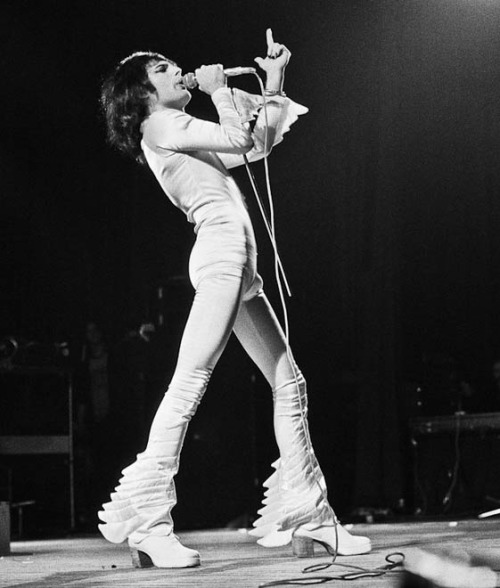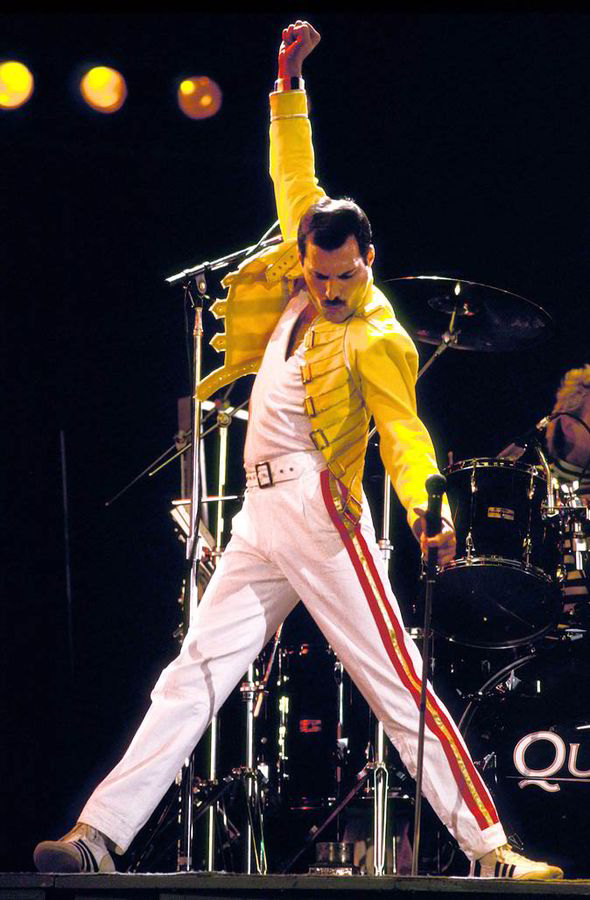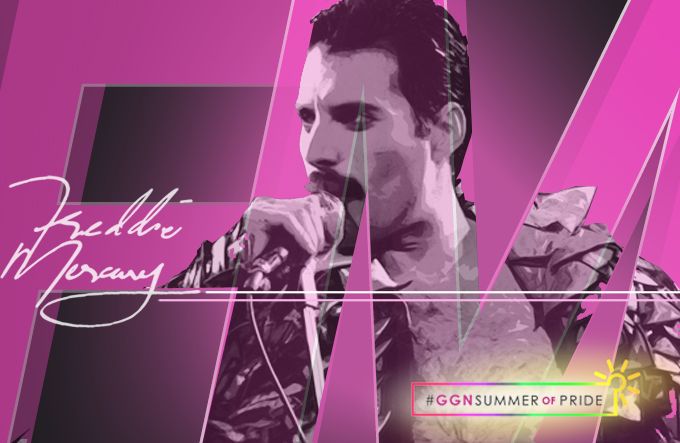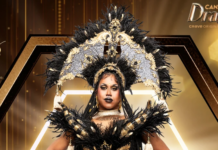GGN Flashback :: We celebrate the release of Bohemian Rhapsody, the story of Queen and Freddie Mercury, in Canadian theatres November 2nd, with this re-release of a tribute piece published by GGN last year.
Watch for an open-hearted performance from Rami Malek (Mr. Robot) – what he serves is is so buzz-worthy we bet he will garner an Oscar nod and possibly even win – for his Mercury. No one has ever met the challenge of playing the complicated musical genius formerly known as Farrokh Bulsara from Tanzania, East Africa before – imagine how daunting.
Malek’s intelligent performance hinges on Mercury’s humanity, as much as his flamboyance, which is impressive. A lesser actor might have propped their portrayal up with Mercury’s bigness, showing us a caricature instead of a man.
It’s worth seeing such a queer icon immortalized at last in a bio pic, even though the script is thin. We don’t see Mercury’s very busy sex life at all, and his acquiring of HIV/AIDS is downplayed, except as catalyst to drive the story to it’s inevitable conclusion. Then again, packing the life of a band like Queen and its lead singer into 90-odd minutes is impossible, no matter who tries.
Oh and warning: Mercury’s teeth in the film are so awful we had to look away sometimes to give our eyes a rest. Holy chompers. Mind you, the theatre was packed and we sat in the second row.
“More space in the mouth, more range,” as Mercury states early on in the film, to dental detractors. The superstar had a comeback for everything, we learn. We’re glad he’s come back, in spirit, in 20th Century Fox’s Bohemian Rhapsody.
Tickets: https://www.bohemianrhapsodytickets.com
Freddie Mercury was one of the most famous and flamboyant men in rock and roll history.
A man with one of the most powerful singing voices the world has ever heard; a man loved by heterosexual hooligans, glam boys, and everyday people. Freddie Mercury broke the rules. He took the rigid concepts of gender and not only bent them, but transcended them.
Gender Roles
Between the socially accepted extremes of sexuality and gender lies a vast spectrum of anything and everything else. These differences were initially observed by Dr. Alfred Kinsey in the U.S., who devised the Kinsey Scale in 1948 “in order to account for research findings that showed people did not fit into neat and exclusive heterosexual or homosexual categories.”
Kinsey, in his own way, opened the door of social acceptance to the LGBT community proving that human sexuality does not fit into any prescribed gender roles; that most of us fit into the spectrum that is indeed fluid from moment-to-moment. There is much freedom in being authentic and molding one’s own gender.
Glam

Gender-bending was part of the fun of the Glam Rock movement that took the UK by storm in the early 1970s, lead by the super sexy and super androgynous Marc Bolen of T. Rex. David Bowie, Gary Glitter, Alice Cooper, and Sweet among others, followed in shocking suit with boys in make-up and long hair, wearing outrageous glitzy costumes and platform boots. While Bolen was a huge Glam influence, the man who fronted Queen took Glam, performance, and popular music to new heights previously unseen.
Of Glam, Freddie Mercury said in 1973, “We’re confident people will take to us, because although the camp image has already been established by people like Bowie and Bolan, we are taking it to another level. The concept of Queen is to be regal and majestic. Glamour is part of us and we want to be dandy. We want to shock and be outrageous instantly.”
The newfound sexual freedom of the time had many people exploring what had been previously considered taboo. Freddie Mercury was no exception – he began his sexual expression with bi-sexual experimentation before fully embracing his homosexuality. “I’m as gay as a daffodil, my dear!” he once said.
The Mercury Image

Freddie was born Farrokh Bulsara, to Persian parents in Zanzibar, attended an English boarding school near Bombay, and settled in the UK in 1964. He was a part of a post-psychedelic 60s movement that spotlighted sexual and gender experimentation and changed rock music forever. Glam inspired the New Romantics of the early 80s and the androgynous metal hair bands of the mid-80s, all the way up to modern acts like Lady Gaga, Katy Perry, and Adam Lambert.
Freddie sang with an amazingly powerful voice with an astonishing range, wrote classic generational anthems, and rocked and inspired millions of people. He predicted his legendary status and thought of himself as a “musical prostitute”. He was a star, he knew it, and he worked it: “I do deliver sex appeal. It’s part of modern rock. I sell sex appeal with my body movements on stage.”
His costumes, part of his onstage persona, were specially designed for him by Zandra Rhodes and later by Diana Moseley – from tight sequined or harlequin jumpsuits to macho leather jackets, and from dreamy floating caftans to regal ermine-trimmed capes, Freddie said, “I dress to kill, but tastefully.”
The Mercury Legacy
Freddie Mercury moved many of us for all sorts of reasons. GGN asked some staffers and friends what Freddie meant to them:
Freddie was a man comfortable in his own skin and that comfort continues to inspire other men to seek and hold their own confidence in their dress and their attitude. I love Madonna but he was the original “Express Yourself”. – Shaun Proulx, Shaun Proulx Media
I think my impression of him now is mostly fantasy. He is wilder, crazier and gayer in my mind’s eye than he could possibly have been in real life. There are some lyrics or bits of live performance that steal you away from the purity of my original listens to the records, but if I go back to my young mind where gay and straight didn’t exist, I can hear Queen the way I like to hear them: without subtext, back story or bias – lovely.” – Mark Wigmore, producer, JazzFM
Freddie Mercury was to my mind one of the gay world’s pioneers. He broke the hard ground of suspicion and intolerance and won acclaim and respect. I am saddened and frustrated by the fact he, and others like him, can’t see today what good he has done in winning us more acceptance. Ironically, I suppose, his loss has been our gain. – Barry
He was the showstopper, no question. He was easily one of the greatest performers ever. Performing was his gift–along with that superb voice! And truthfully, we all knew he was a gender-bender; that is one reason why I became more and more open to lifestyles like his. It made me realize connecting with both sides of our sexuality can produce great talent–the fruits of which will remain unforgettable. – Tim
– GGN






